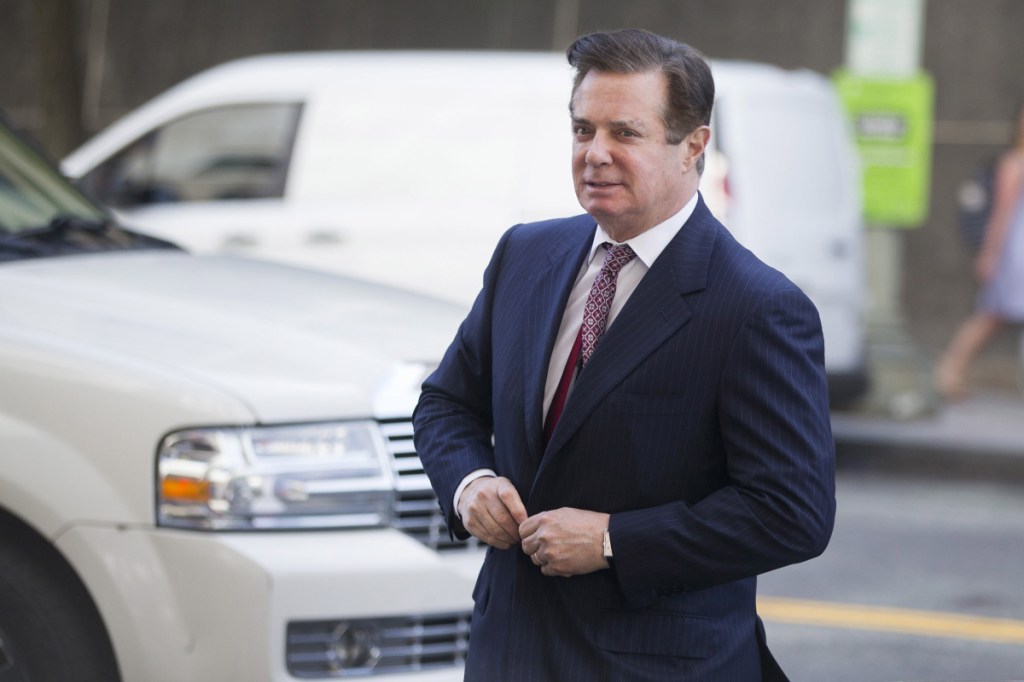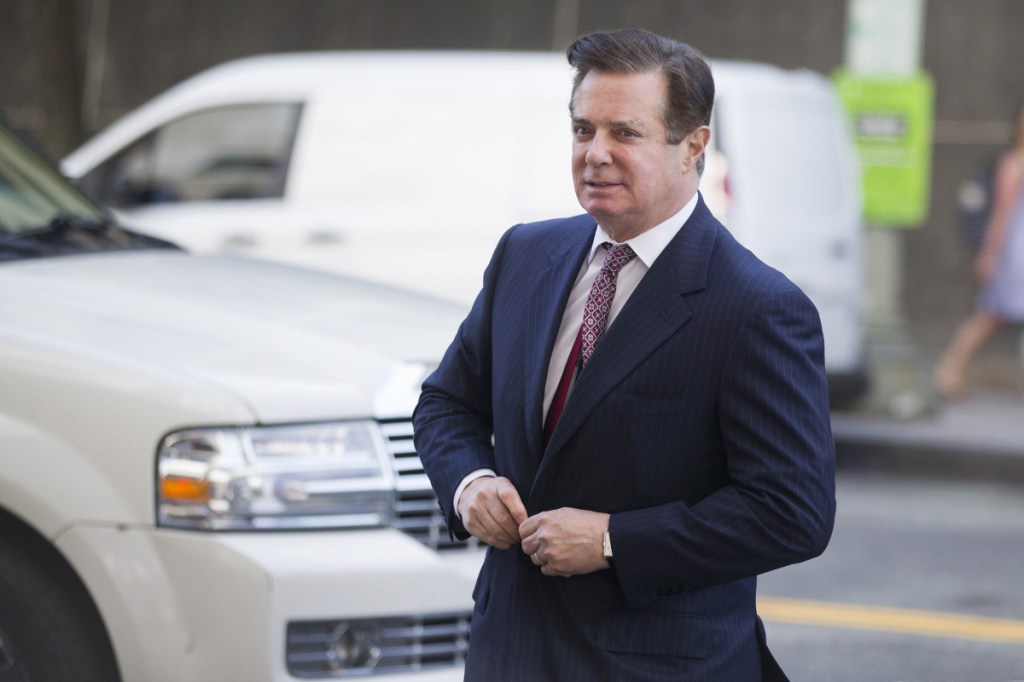The prosecution of President Trump’s former campaign chairman Paul Manafort will go forward in federal court in Virginia, a judge ruled Tuesday.
U.S. District Judge T.S. Ellis III made waves in May when he grilled prosecutors from the special counsel’s office, questioning whether bank and tax fraud crimes that Manafort is accused of committing were outside the scope of the special counsel’s investigation of Russian interference in the 2016 election.
Ellis fleshed out those concerns in his opinion. “Although this case will continue, those involved should be sensitive to the danger unleashed when political disagreements are transformed into partisan prosecutions,” the judge wrote.
But Ellis ultimately concluded that special counsel Robert Mueller had the right to bring the case, setting the stage for a trial that is scheduled to begin July 25. If there are no further delays, it will be the first case brought by Mueller’s team to come before a jury.
The May 2017 order appointing Mueller “plainly authorizes the investigation of indirect links between Trump campaign officials and the Russian government,” Ellis wrote, and “the special counsel is authorized to prosecute federal crimes that arise out of his authorized investigation.”
Manafort, 69, is accused in both Alexandria, Virginia, and Washington federal courts of illegally obscuring his work for a Russian-backed political party in Ukraine for over a decade. He has pleaded not guilty in both cases.
As he did in court last month, Ellis asserted in his opinion that Mueller’s real interest in Manafort is as a cooperator against the president.
“Even a blind person can see that the true target of the special counsel’s investigation is President Trump, not defendant, and that defendant’s prosecution is part of that larger plan,” he wrote in a footnote. “Although these kinds of high-pressure prosecutorial tactics are neither uncommon nor illegal, they are distasteful.”
Ellis also reiterated his concern that the special counsel’s jurisdiction was unconstitutionally broad, calling it “a close question.”
Manafort’s attorneys had argued that the special counsel should never have been given latitude to pursue the fraud case because it did not stem from the probe of possible collusion between Trump officials and the Russian government. Prosecutors in the Eastern District of Virginia had begun investigating Manafort’s business activities years before Trump launched his campaign for president.
Manafort, who in his career as a consultant advised both Republican presidents and foreign dictators, was struggling financially in 2005 when he was connected with Ukrainian politician Viktor Yanukovych.
Yanukovych’s Party of Regions was dominated by oligarchs who made their fortunes after the fall of the Soviet Union. Manafort burnished their image at home with sharp rhetoric and in the U.S. with talk of working together and supporting NATO.
The effort succeeded – Yanukovych was elected president in 2010. But he was ousted four years later amid widespread anti-corruption protests.
In Virginia, Manafort is accused of illegally hiding millions of dollars that prosecutors say he made from that work in offshore bank accounts and failing to pay taxes on it. When Yanukovych was unseated and the money dried up, prosecutors say Manafort lied about his income and debt to secure millions in new loans against expensive real estate he had bought with the illegal income.
In Washington, Manafort is accused of failing to register as a foreign agent when he lobbied for Yanukovych and then lying about doing so, while conspiring to launder the money he made.
Manafort served as Trump’s campaign manager for three months, resigning in the wake of reports that his work involving Ukraine may have been unlawful.
During a court hearing in Alexandria last month, Ellis sharply pressed the prosecutors, saying the government did not care about the fraud case and was interested only in “information Mr. Manafort can give you that would reflect on Mr. Trump and lead to his prosecution or impeachment.”
Deputy Solicitor General Michael Dreeben pushed back in court, saying that since taking over the Manafort investigation, the special counsel has “considerably advanced and deepened our understanding” of the lobbyist’s actions.
Ellis’ tough questions for Mueller’s office at that May hearing cheered supporters of the president. Trump himself praised the judge last month from the stage of a National Rifle Association event in Dallas, calling him “something very special.”
Manafort has put forward additional legal challenges, some of which will be aired at a hearing this Friday. He has disputed the constitutionality of searches of his Alexandria home and storage unit. He also wants Ellis to look into leaks to reporters of information about the case, alleging they were intended to bias jurors.
Ellis’ decision echoes one reached last month by U.S. District Judge Amy Berman Jackson, who denied a similar motion to dismiss charges in the district. That case has grown heated, with the special counsel’s office accusing Manafort of pressuring witnesses to testify falsely and Berman ordering he be held in jail pending a September 17 trial.
Send questions/comments to the editors.




Success. Please wait for the page to reload. If the page does not reload within 5 seconds, please refresh the page.
Enter your email and password to access comments.
Hi, to comment on stories you must . This profile is in addition to your subscription and website login.
Already have a commenting profile? .
Invalid username/password.
Please check your email to confirm and complete your registration.
Only subscribers are eligible to post comments. Please subscribe or login first for digital access. Here’s why.
Use the form below to reset your password. When you've submitted your account email, we will send an email with a reset code.